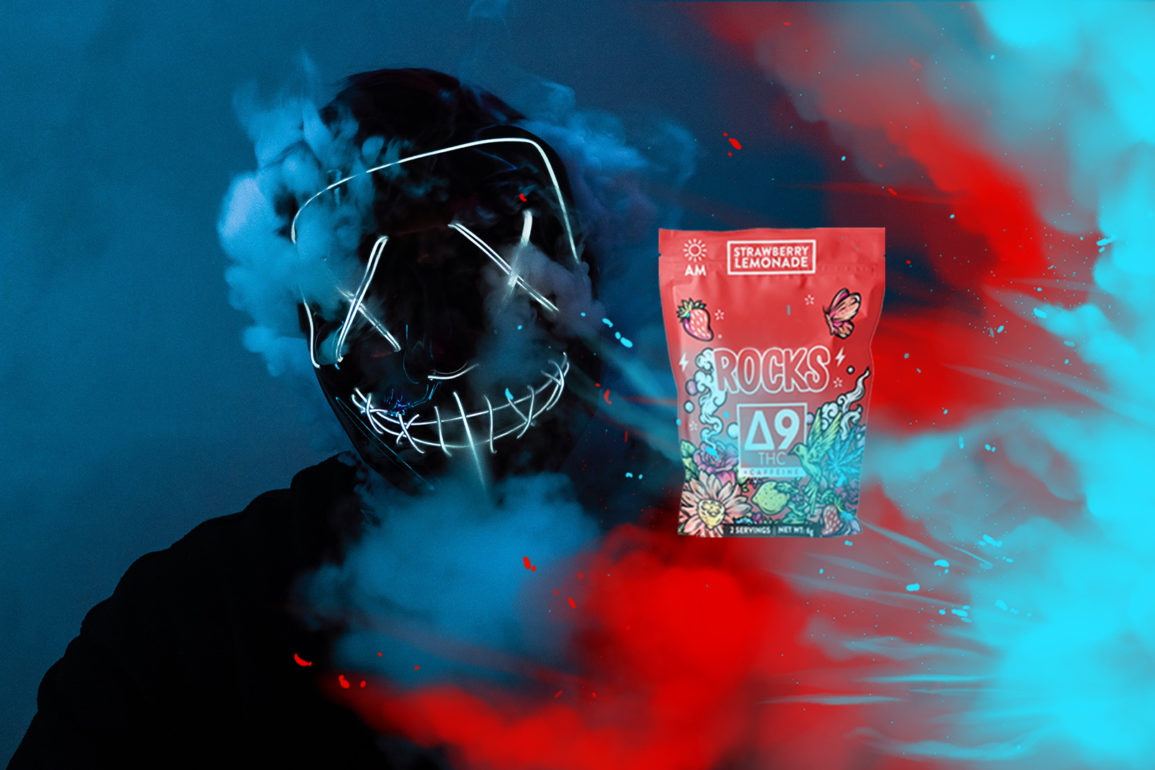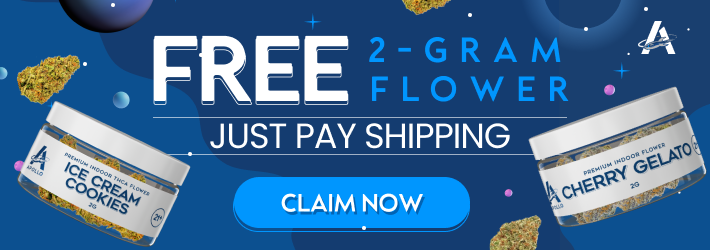Key Takeaways
- Hemp delta-9 is just like regular delta-9, except it comes from plants that contain less than 0.3% of it on a dry weight basis.
- Because it’s an identical chemical, it will get you high like any other delta-9 THC.
- Hemp delta-9 is legal under the 2018 Farm Bill, provided it meets the concentration requirement.
- The FDA can step in when either hemp delta-9 or CBD are used in food, under the Federal Food Drug & Cosmetics Act.
- The concentration requirement is on a “dry weight” basis, meaning you have to subtract the water weight of the product (or plant material) before you calculate.
- Hemp delta-9 will show up on a drug test if you have enough of it to really feel the effect.
- In future, it’s likely that the “loophole” in the law will close, whether through states taking action (as with delta-8) or clarification at the federal level.
Delta-8 THC gave us an example of how the 2018 Farm Bill (unintentionally) leaves us a lot of ways to get high in a way that’s federally legal.
While states are individually closing that particular loophole, another has already opened up in the form of hemp delta-9 THC. This is ordinary THC, except it’s produced from hemp. This means it’s not illegal at the federal level, as long as it’s less than 0.3% THC.
But just like you can get just as drunk on light beers as you would on whisky – if you drink enough of them – a limitation on the concentration doesn’t stop people from getting high. Welcome to the world of hemp delta-9.
What Is Hemp Delta-9 THC?
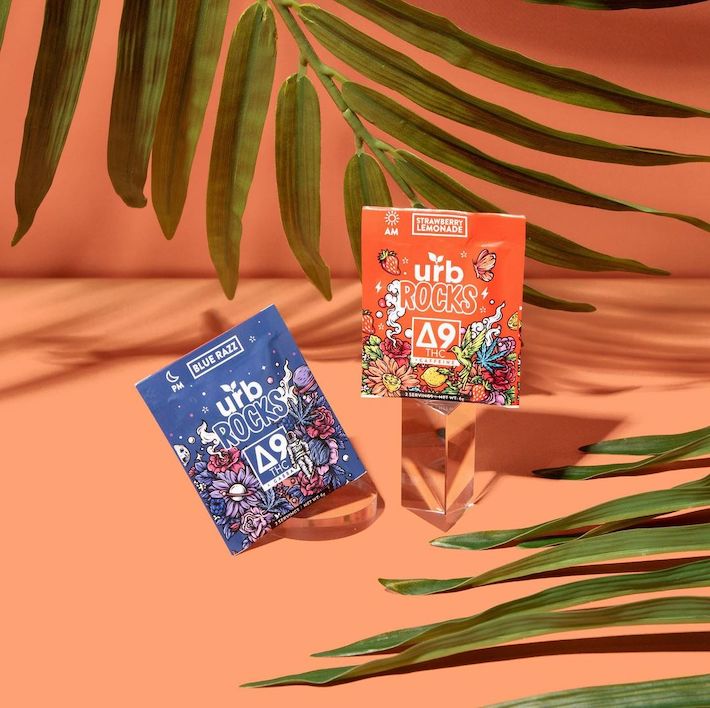
The 2018 Farm Bill legalized hemp at the federal level. This wasn’t blanket legalization though: it came with the proviso that it’s only legal if it contains 0.3% or less delta-9 THC by dry weight.
This is the main psychoactive component of cannabis, so it makes sense that this is the part that would be limited. However, there is still delta-9 THC in hemp, and for some purposes it can be called hemp delta-9.
The 0.3% limit is the key to the whole issue – and why you would call it hemp delta-9 in the first place. Imagine you have a 6 g (dry) product. This can have up to 18 mg of THC and still fall within the legal limit.
This level of THC is in line with most standard edible dosages – it’s fairly strong if anything. The point is that you could legitimately use it – and sell it – for the purposes of using THC. It would be federally illegal if it was ordinary cannabis, but as a less-than-0.3% component of hemp, the Farm Bill permits it.
In short, labeling it “hemp delta-9” is a way to signal that this is legal delta-9, not the “illegal” type.
RELATED: Study Finds 50% of Hemp Delta-9 Products Are Mislabeled, and Get You Higher Than Cannabis
Hemp Delta-9 vs. Regular Delta-9: What’s the Difference?
There is no difference between hemp delta-9 and regular delta-9, aside from the source. The chemical itself is absolutely identical. The distinction between the delta-9s comes purely from the source, with hemp delta-9 coming from hemp and “regular” delta-9 coming from a standard cannabis plant.
Even this distinction is a little strained, though: hemp and regular marijuana are the same species of plant. The key difference between the two is the same arbitrary 0.3% delta-9 THC cutoff. Higher than that, it’s marijuana; lower than that, it’s hemp.
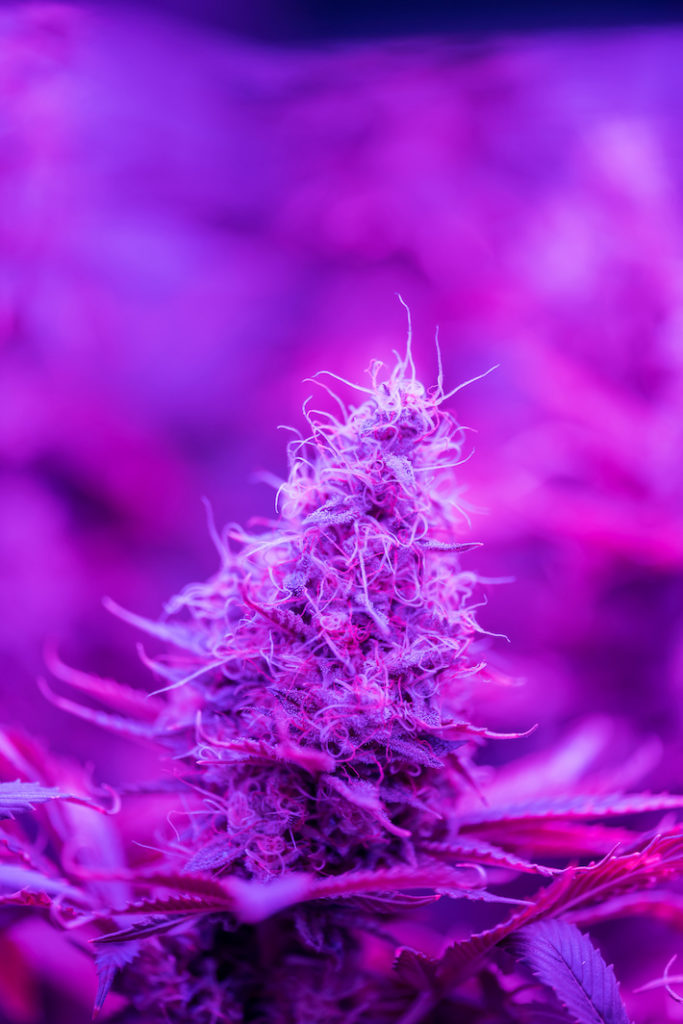
This makes it very clear that the delta-9 THC is the same either way. If the plant it comes from is low in THC, it’s totally legal at the federal level, if it’s high in THC, it’s a Schedule I controlled substance. This is patently ridiculous but that is the law.
In contrast, delta-8 is almost identical but it has the double-bond in a different place – because of this delta-8 gives a gentler, “weed lite” experience.
Does It Get You High?
Yes, delta-9 THC from hemp does get you high.
Since it’s exactly the same chemical as in ordinary cannabis, it has exactly the same effects. The only difference is the amount of edible you’d have to consume to get an equivalent dose.
In legal states, edibles can basically have any concentration they want provided it falls under a certain amount per serving (usually 10 mg) and a certain amount per package (usually 100 mg).
So while it’s true that you’d likely have to eat more in terms of grams of the finished product to get the same dose of THC with hemp delta-9, the effect will be exactly the same once you’ve done that.

It’s worth noting that because the delta-9 in this case comes from hemp, any products of it will likely contain a different mix of cannabinoids compared to marijuana-derived products. In particular, the THC:CBD ratio will be shifted much further towards CBD.
We spoke to Matt Muratet from Delta Extrax, who commented that:
Our hemp Delta-9 products are similar in nature, but very different from traditional cannabis edibles. The only way they can be “compared” to edibles in adult use states is because of the Delta-9 cannabinoid, but the dosages and formulations are completely different. In traditional cannabis edibles, you’ll find dosages to be much higher than the ones you’ll find in our hemp-derived Delta-9 products, especially when it comes down to the amount of Delta-9 THC that’s present in our products.
Matt Muratet, Delta Extrax
While it’s fair to say there are differences in formulation and the dosages of other cannabinoids, it’s important to point out that Colorado (for instance) imposes a “per serving” limit of 10 mg of THC.
One example hemp delta-9 product from Delta Extrax contains 10 mg per piece. So although it may be true that doses are lower in hemp delta-9 products, it certainly isn’t always the case.
We also spoke to Erik Paulson, PhD from InfiniteCAL Labs, who confirmed higher dosages in many hemp delta-9 products:
In the past six months InfiniteCAL has seen a large increase in varying types of edibles, specifically gummies that have amounts of d9-THC ranging from 5 to 100mg per serving. The majority of these products have all tested beneath the 0.3 percent threshold.
Erik Paulson, PhD, InfiniteCAL Labs
Is Hemp Delta-9 Legal?
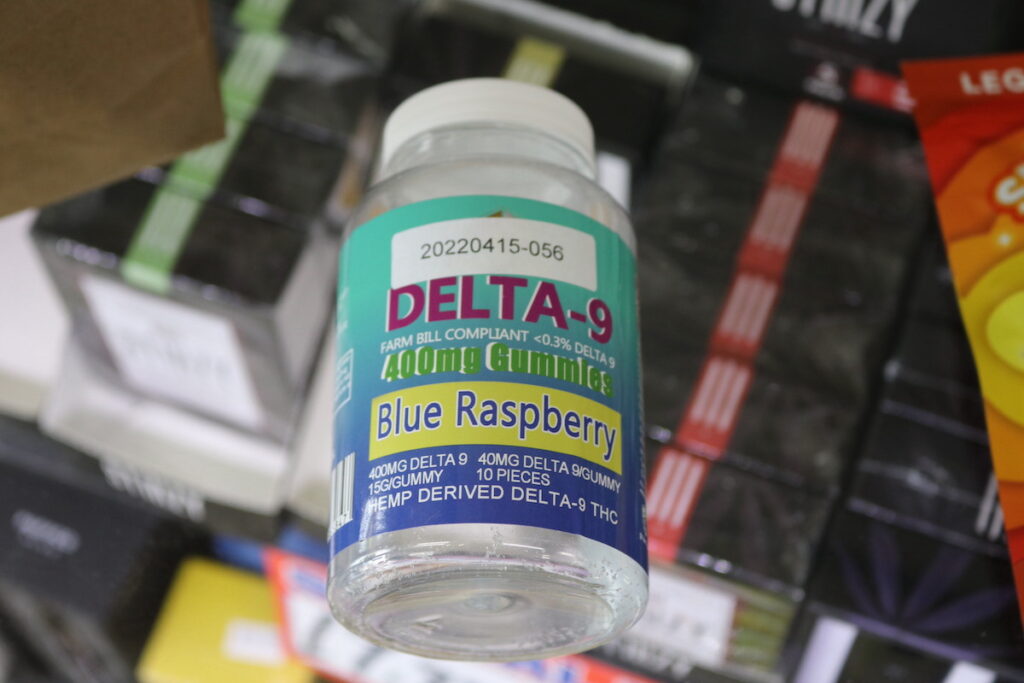
The trend for hemp delta-9 revolves almost entirely around this question. The confusion surrounding its legality comes from the 2018 Farm Bill, but in a sense there is no cause for confusion at all. The Farm Bill legalizes “hemp” at the federal level, and provides the following definition for hemp:
“The plant Cannabis sativa L. and any part of that plant, including the seeds thereof and all derivatives, extracts, cannabinoids, isomers, acids, salts, and salts of isomers, whether growing or not, with a delta-9 tetrahydrocannabinol concentration of not more than 0.3 percent on a dry weight basis.”
RELATED: A State-by-State Guide to Hemp Delta-9 THC Regulations
The most important parts of this are the dry weight basis limit for delta-9 (0.3%) and the fact that it includes “all derivatives, extracts [and] cannabinoids” provided they conform to this limit. Reading this in any reasonable way implies that if you take an extract from a cannabis plant – regardless of the cannabinoids it contains – it is legal at the federal level provided it is less than 0.3% delta-9 by dry weight. In short, it is legal to have hemp delta-9 as long as it’s below this concentration limit.
We spoke to Neil Willner, the co-chair of the cannabis group at RCCB Law, who was a little more cautious in his response:
I believe that products that contain hemp-derived delta-9 THC from legally sourced hemp are not illegal meaning the DEA or law enforcement may be hard pressed to send you to jail. That said, foods, beverages or dietary supplements that contain hemp-derived delta-9 THC are impermissible under the Federal Food Drug & Cosmetics Act because THC, just like CBD, is an active ingredient in a drug product that has been approved by the FDA. Many of the new products flooding the market clearly violate the FD&C Act and similar state food safety statutes.
Neil Willner, Co-Chair of the Cannabis Group at RCCB Law
On this last point about THC (or CBD) in food products, Willner added that:
“Throughout its guidance documents and warning letters on CBD in foods and beverages, the FDA was careful to always include THC in its analysis as well. Just like with CBD, the FDA takes the position that THC is an impermissible food additive and that THC products cannot be sold as dietary supplements. In an overly simplified explanation, this is because THC is an active ingredient in a drug product that has been approved by the FDA (Marinol and Syndros); just like CBD is an active ingredient in the FDA-approved drug, Epidiolex.”
This gives some important context for the laws, and underlines the point that law enforcement are not really being lax about this. The law around this topic can get murky and the boundaries are becoming blurrier and blurrier.
It’s more that it isn’t currently very difficult to prosecute anyone for things like this. There have been raids in some places for CBD and delta-8 products, but that was only because they exceeded the legal limit for delta-9. They may try the FD&C Act in the future but that hasn’t happened so far beyond these warning letters.
Does Hemp Delta-9 Violate the “Spirit” of the Law?
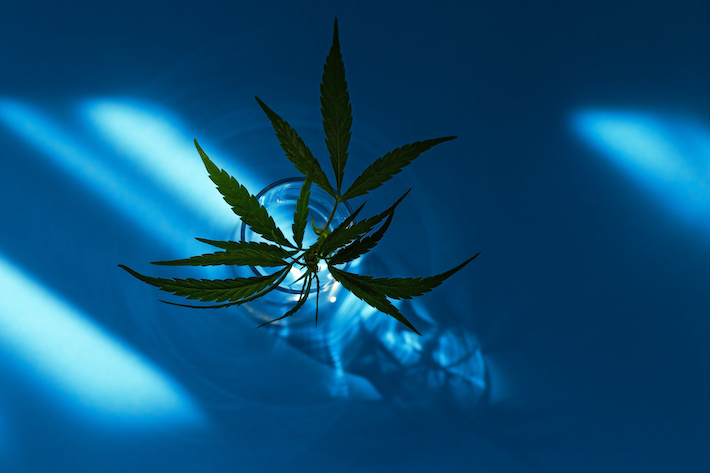
Some people try to cut through this confusion by talking about violating the “spirit of the law,” but this argument doesn’t really hold up. Willner explains:
“While I don’t think it was the intent of the authors of the 2018 Farm Bill to create a pathway for unregulated intoxicating cannabinoid products, the “spirit” of the law is not relevant when the text of the law is crystal clear which is the case when looking at the 2018 Farm Bill. The definition of hemp is unambiguous and broad.”
He also points out a memo from the USDA General Counsel, where “Stephen Vaden seemingly goes out of his way to explain that the 2018 Farm Bill removed delta-9 THC in hemp from the Controlled Substances Act. This is one of many indications that the plain text of the 2018 Farm Bill is clear.”
Simply put, there is no easy way out here. Whatever the intention of the law is, the letter of the law is clear, and based on that the conclusion is hard to avoid: hemp delta-9 is legal. Or perhaps more accurately, it isn’t illegal.
How Is Hemp Delta-9 Farm Bill Complaint? And What Is a “Dry Weight Basis” Anyway?
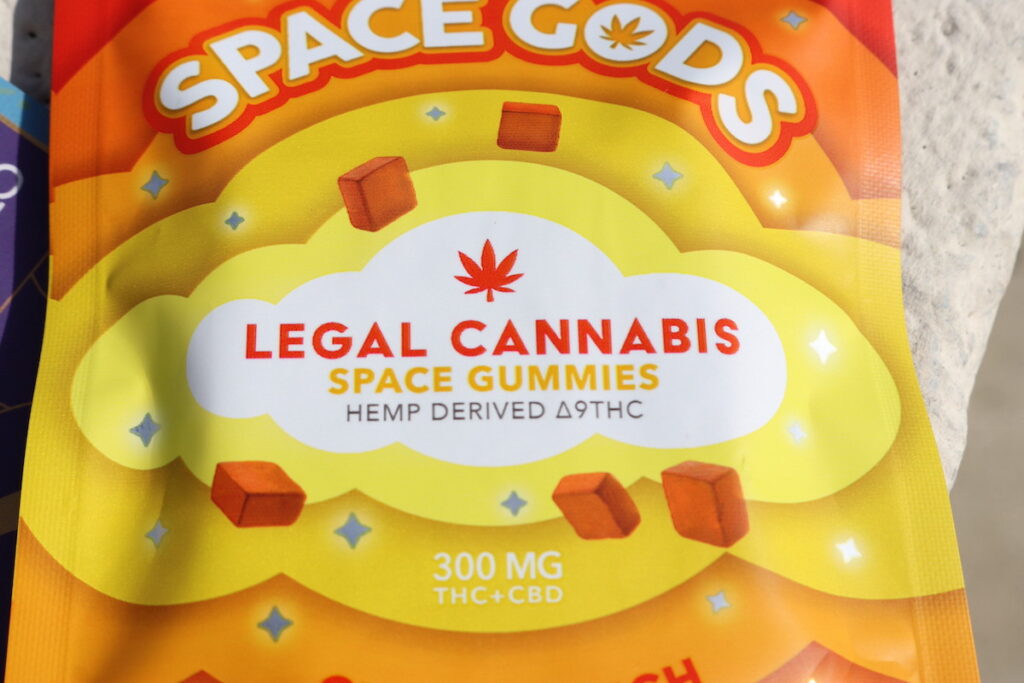
Hemp delta-9 is Farm Bill compliant whenever it meets the requirement that it isn’t higher than 0.3% in concentration. However, this is only on a “dry weight basis.” This basically means that you remove the “water weight” of the product before you work out what percentage is delta-9. It’s not 100% clear whether this refers to the plant or the finished product.
“The industry has applied the delta-9 limit to both the original plant and a finished preparation and while I think that’s the correct interpretation, it has not been tested in court,” explains Neil Willner, adding, “Unfortunately, many industry actors have completely ignored the “dry weight basis” phrase, claiming that their delta-9 hemp products are legal because they contain less than 0.3% delta-9 based on the total weight of the product, even liquids.”
In short, you can’t just take the weight of a finished product, take 0.3% of that and make sure you’re under the limit. There is guidance from the FDA on this, but most companies don’t appear to be doing that unless they’re selling flower. Erik Paulson from InfiniteCAL Labs pointed out to us:
“The ‘dry weight basis’ terminology of the 2018 Farm Bill is intended to take into consideration the moisture content of hemp flower or biomass when determining the THC content of that flower. Therefore, for every cannabis and hemp flower sample that is received, a moisture analysis is performed to determine the moisture content and provide a moisture correction factor. When it comes to infused hemp products, it is not standard practice to perform a moisture analysis unless requested by the customer. The moisture analysis can be performed on a variety of sample types, however, as long as the sample itself is not significantly more volatile than water.”
He also adds that without some clearer guidelines for industrial hemp derived products, this standard practice isn’t going to change.
Will Hemp Delta-9 Show Up on a Drug Test?
Hemp delta-9 is exactly the same molecule as ordinary delta-9 THC, so yes, it will show up on a drug test.
For CBD products that have only very small amounts of THC, it’s likely that it won’t show up on such a test. However, it is possible, especially if the CBD oil isn’t tested or there are issues like cross-contamination or a lax extraction process.
However, using CBD oil for the CBD is different from taking a hemp delta-9 product, even though they both have the same requirement to be 0.3% delta-9 or lower.
This is basically because when you use a hemp delta-9 product, you are purposefully using enough of it to produce an effect from the delta-9. So it will show up on a drug test for the same reason taking an edible would: you’re taking a substantial amount of THC.
Are There Any Safety Concerns With Hemp Delta-9?
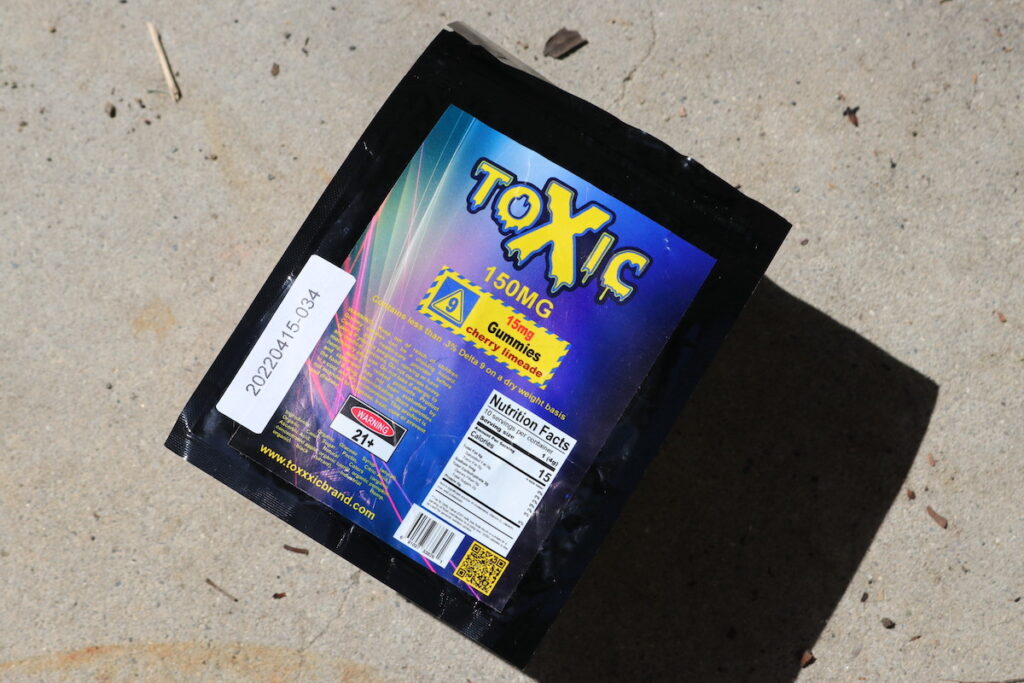
While the delta-9 THC is the same whether it’s derived from hemp or ordinary marijuana, the process for producing it under the Farm Bill is much less stringent than the equivalent process in legal states. This does raise some potential concerns, as Erik Paulson from InfiniteCAL Labs pointed out:
“One main concern with delta-9 hemp products is that we are seeing these samples being dosed at the same levels per serving as cannabis products being sold in licensed cannabis dispensaries.
Regulated cannabis products go through rigorous and strict testing to ensure the consumers are receiving a safe, quality product. In comparison delta-9 hemp products only have to fall below the 0.3 percent threshold and do not have to adhere to any safety standards.
There are little to no regulations for delta-9 hemp products and they are available almost everywhere now, from gas stations to smoke shops. This is concerning to us because the consumers have little to no knowledge of where and what else may be in their product. For example, is it properly labeled? Are there pesticides in the product? What is this product even made of? These unanswered questions should be a concern for consumers. They are at high risk of becoming seriously ill if the package of edibles they buy is contaminated.”
As with CBD products, this is why a Certificate of Analysis (COA) is crucial. These are documents from lab testing of the finished product, and generally at least confirm the potency of the product. Matt Muratet from Delta Extrax confirmed that they always do this for the products they sell:
“We provide Certificates of Authenticity for every single product we offer. As mentioned earlier, we pride ourselves on our responsible marketing and transparency, so all of our products are lab-tested by a third party to ensure efficiency and transparency.”
However, Paulson pointed out to us that the testing doesn’t always reach the standard of testing in legal use states:
“Typically, InfiniteCAL will get requests for only potency testing for these samples, but occasionally we do see orders for full-panel testing including safety tests. It also depends on where the products will be sold. Colorado recently established testing guidelines for all hemp products, and other states seem to be not too far behind. As this industry continues to develop, there are bound to be more regulations that go into effect on a state-by-state basis with the potential for federal change as well.”
The challenge for consumers here is clear. At present there are at least companies that provide lab reports for everything they sell – which is great – but generally these will only tell you about cannabinoids and not about safety. Of course, provided you buy from reputable suppliers you probably don’t have anything to worry about, but when other states follow Colorado’s example it will make things much better for consumers. At the moment, you have to rely on your own judgment, reviews and other factors, but this could all still be misleading.
What Could Happen With Hemp Delta-9 in the Future?
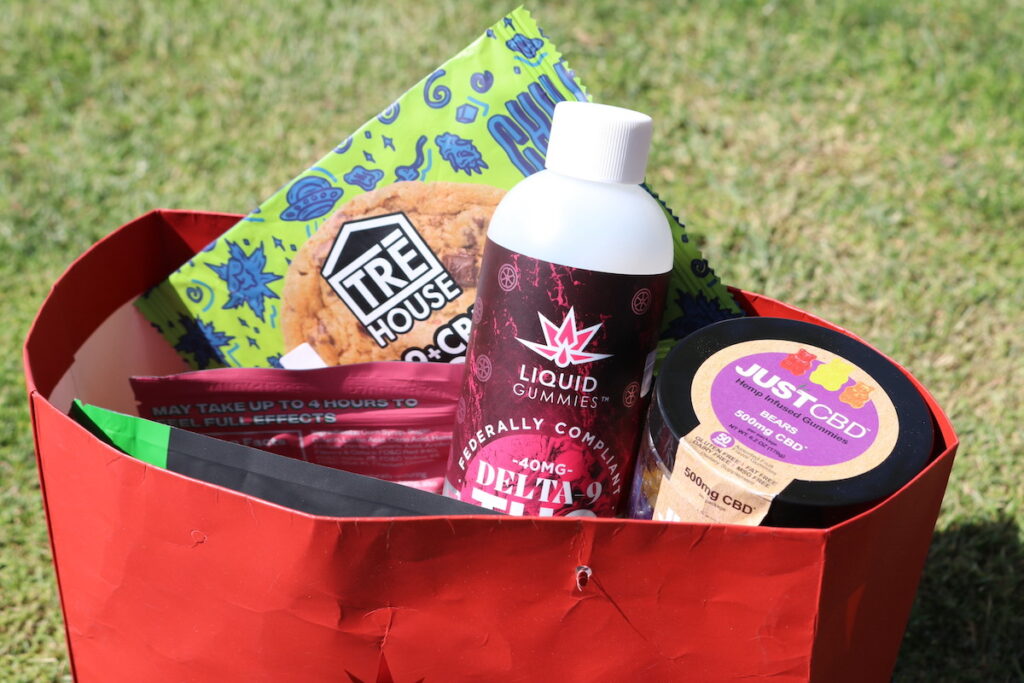
Right now in many states without legal adult use, you could buy a 10 mg delta-9 THC product if it comes from hemp, but you couldn’t buy a basically identical product if the same amount of THC came from ordinary cannabis. Clearly this situation can’t continue for long. We – and many others – would hope that the obvious solution to this issue is to legalize adult use of cannabis at the federal level. However, the situation surrounding delta-8 THC is probably more instructive than this wishful thinking.
“I expect states to step up in light of the lack of federal guidance. In 2021 and the beginning of 2022, we saw many states react to the proliferation of delta-8 THC products, either deeming delta-8 THC an illegal controlled substance or moving delta-8 THC to its regulated marijuana program,” Neil Willner suggests, adding, “I also anticipate that state attorneys general will begin commencing consumer protection actions against manufacturers and retailers of hemp delta-9 products (as well as delta-8, delta-10, THC-O, and HHC products) given their penchant for mislabeling products and wildly outlandish claims.”
The situation surrounding delta-8 is very similar to that around hemp delta-9. As mentioned earlier, delta-8 is an alternative cannabinoid which is present in hemp and marijuana in small quantities, and is basically like a weaker version of ordinary, delta-9 THC. Much like with hemp delta-9, manufacturers and many attorneys claimed that this was legal under the Farm Bill because the delta-9 concentration is less than 0.3% by dry weight.
The problem from lawmakers’ perspectives – if we’re being honest – is that people are getting high. Neither delta-8 or hemp delta-9 were illegal as a result of the Farm Bill, but if people are enjoying something (the horror) then some politicians have an apparently unavoidable urge to get involved and ban it.
With delta-8, there were many indications (including our own analysis) that a majority of products weren’t actually Farm Bill compliant, but this really isn’t as relevant as it seems. This could have easily led to more scrutiny on products, but instead issues like this led to a wave of bans.
As Willner suggests, the problem is partially that there isn’t much guidance from the federal government, aside from vague and often-conflicting statements, but it’s unavoidable that there is also a desire to protect the “spirit” of the law. And the “spirit” of the current federal law is that CBD and anything that doesn’t get you high is fine, but anything that does get you high shouldn’t be allowed.
We asked Matt Muratet from Delta Extrax if he was concerned about the FDA stopping them from being able to sell hemp delta-9 products in the near future, but he was cautiously optimistic:
“Overall, l believe our team does an amazing job at staying updated with most regulations and we even regulate ourselves in many ways. We pride ourselves for our ability to stay responsible and transparent with the way that we operate and because of this, we aren’t concerned about the FDA stopping us from selling our products. But we do understand the purpose and significance of the rules and regulations in our industry.”
While he is likely right that there isn’t much to worry about from the FDA, it seems that states will quickly step up and “close the loopholes” they perceive to be coming from the Farm Bill. Delta-8 was one, hemp delta-9 is another, and there are many others like delta-10, THCO and HHC. Good retailers like Delta Extrax will likely be able to navigate the patchwork of regulations pretty well and avoid making the sort of claims that Willner suggests will lead to lawsuits in the coming year. However, as with delta-8, the quick proliferation is likely to be cut short by state laws very soon.
But, of course, most Americans favor the legalization of cannabis. So it is still possible for the federal government to actually do that and close the loopholes for good. Sell whatever cannabinoids you want, but expect the same type of regulations we see for ordinary cannabis delta-9 products in legal states.
Conclusion
At least for now, hemp delta-9 is a way to get high from a technically legal supply, essentially wherever you are in the country. It’s likely that state governments across the country will start closing the “loophole” and either banning hemp delta-9 or bringing it in line with current regulations for non hemp delta-9.
But this is the nature of the Farm Bill and cannabis law at the federal level – prohibition creeps along against popular opinion and when one loophole closes, the next one has already been open for months. So what is there to do but enjoy your delta-9 however you can get it? Do your due diligence in choosing a company and don’t worry too much about the ongoing game of legal whack-a-mole.
